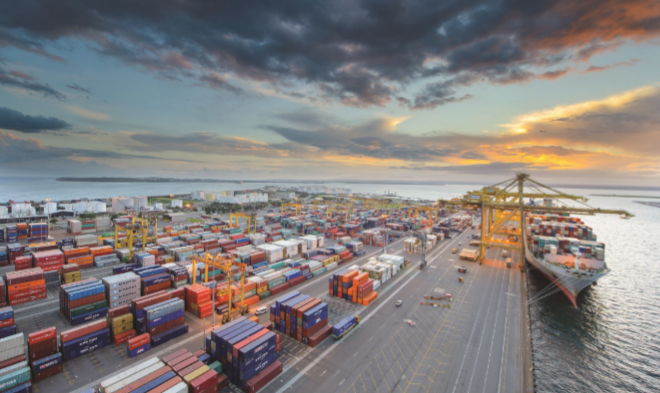DP World, which is in dispute over rostering plans with the Maritime Union of Australia (MUA), has refused to respond to the unions’ allegations that the company has not paid a cent in taxes in eight years.
The dispute erupted in October as the Dubai port and logistics operator had announced plans to change work rosters to meet the demands of an economy that operates 24 hours a day 365 days a year, effectively cutting wages by up to 32%, claimed the MUA.
DP World said that it connects the Australian economy to the world through its ports, with the country the fifth largest user of shipping services in the world, “Efficient cross-border goods movement is essential for the country’s economy, with numerous businesses of all sizes, from Australian farmers to major retailers, depending on this interconnected system.”
Dockers are less convinced of DP World’s commitment to the Australian economy citing a report from the Centre for International Corporate Tax Accountability and Research (CICTAR), which was established by a number of trade unions and civil organisations so that workers and their communities had “better information about the tax arrangements of multinational corporations”.
CICTAR’s report alleges that DP World had used a number of mechanisms, including debt transactions and inflated management service fees, to reduce its income.
“DP World’s ownership structure in Australia relies on extensive use of shell companies in tax havens, including the Netherlands and the Cayman Islands to shift income back to the investors and the parent company in Dubai, where the tax rate has been zero,” said the CICTAR report.
In total over the past eight years, or more, and in spite of revenues in excess of A$4.5 billion the company has paid zero corporate tax over this period said the report.
As a result of its tax avoidance activities, CICTAR calculated that DPW had “short changed Australia” to the tune of more than A$330 million over the eight-year period.
“Dubai Ports have been reaping billions from their Australian operations yet giving nothing back to the Australian community. They pay no tax and are presently trying to cut the pay of their Australian workforce by up to 32%,” said Adrian Evans, the MUA’s assistant national secretary.
According to the union, DPW’s wage bill in Australia amounted to a little over A$300 million in 2022, just 36% of its revenues and those payments are tax deductible, claimed the MUA.
“In what world is it fair that a wharfie on A$81,335 per annum pays around A$18,500 in tax, while their employer — who earns hundreds of millions of dollars each year in Australia — pays not a single red cent in tax to the Australian community?” Asked Evans.
As the impasse deepened DP World pointed out that over the past 25 years, the company has been a critical part of Australia’s logistics and supply chain network.
It has helped to bolster Australia’s import and export markets. The consistent flow of goods in the supply chain is of national importance, to keep the country and its economy moving. “This is a responsibility that DP World takes very seriously,” said the Dubai company.
Asked to comment on the CICTAR report, DP World did not respond.
Mary Ann Evans
Correspondent at Large







